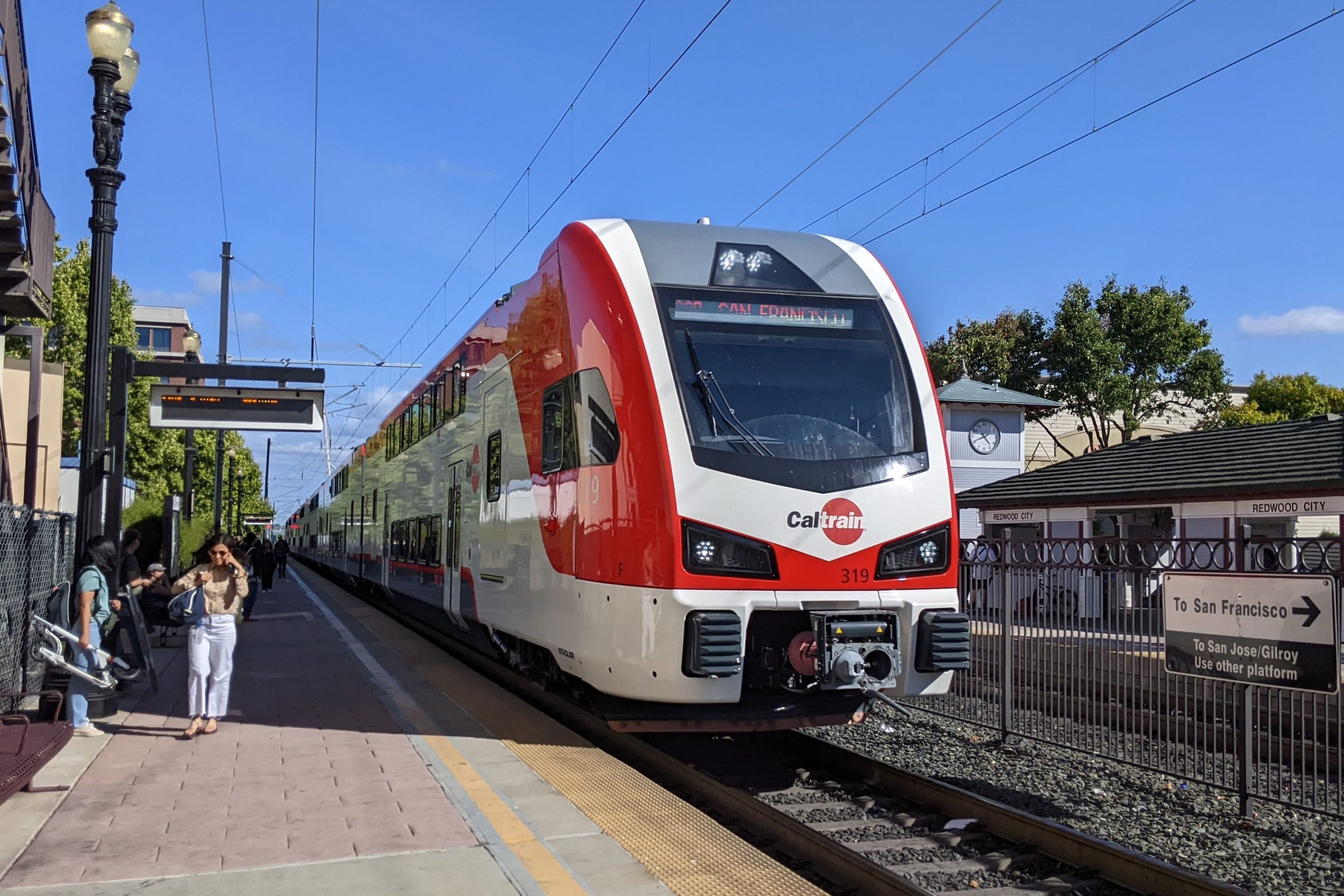 Sen. Jeff Merkley projects that his
Sen. Jeff Merkley projects that hislegislation would allow the United States to almost completely stop
importing oil, primarily by reforming our transportation system. Image:
Office of Sen. Merkley [PDF].
As
the threat of a Republican filibuster continues to prevent the Senate
from passing climate legislation, leading Democrats have tried to scale
back their proposal in an attempt to peel off a few votes. In the
process, serious
attempts to put a price on carbon have fallen by the wayside,
taking with them the best hope of reducing transportation emissions. A new bill introduced
yesterday by Oregon Senator Jeff Merkley, however, aims to reintroduce
transportation into the energy debate, if in a more limited form.
The Oil Independence Bill for a Stronger America, co-sponsored by
Colorado's Michael Bennet, Delaware's Tom Carper, and New Mexico's Tom
Udall, sets an ambitious goal: completely halting imports of oil by
2030. Since transportation accounts for a full 70 percent of our oil
use, that requires changing how the nation moves around.
Based on principles laid
out last month, Merkley's bill has four main components. First, it
looks to improve the fuel efficiency of the transportation system we
currently have. That means providing incentives for buying electric
vehicles and charging infrastructure and setting ambitious new fuel
efficiency standards for all vehicles.
Second, the Oil Independence Act would try to rebalance our
transportation system away from reliance on the automobile. The bill
includes Carper's proposed CLEAN
TEA program, which would require state Departments of
Transportation and metropolitan planning organizations to set goals for
how to reduce greenhouse gas emissions and establishes a competitive
grant program to fund exemplary projects.
Because Republicans are expected to filibuster a cap-and-trade
system that includes transportation, however, the revenues that system
would generate aren't available to fund CLEAN TEA. Merkley's bill only
authorizes the spending for the grant program; it doesn't actually
allocate the funding, potentially leaving the program greatly weakened.
The bill would also make transit
tax benefits equal to parking benefits, permanently index them to
inflation, and help shift freight movement onto trains and ships.
Third, the legislation offers support for the development of
non-oil-based fuels, whether a next generation of biofuels or natural
gas.
Finally, Merkley's bill would try to lower home heating oil use by
helping to provide financing for energy-efficient home retrofits.
Merkley's legislation isn't expected to move forward as a
stand-alone bill. "It's very much a marker for broader energy
legislation," explained Stephanie Potts, a policy associate with Smart
Growth America. As the Senate Democrats try and put forward a reworked
energy bill, she explained, Merkley's bill provides a way of airing new
ideas and measuring their support.
Because transportation accounts for a full third of American
greenhouse gas emissions, serious climate legislation needs to tackle it
in some way. Even so, said Potts, "it seems pretty certain that
transportation fuels won't be in an overall comprehensive cap at this
point." If any sort of cap-and-trade scheme is included at all, she
said, it will only cover utilities.
The Oil Independence Act, said Potts, includes policies that could
significantly reduce the environmental impact of the transportation
sector even in the absence of a price signal. Merkley's office estimates
that the bill could save 8.32 million barrels of oil each day by 2030,
or 96 percent of our total imports.
Whether the Senate leadership embraces these policies will become
clear very soon. An energy and climate bill is likely to be released on
the week of July 26, according to Potts.





